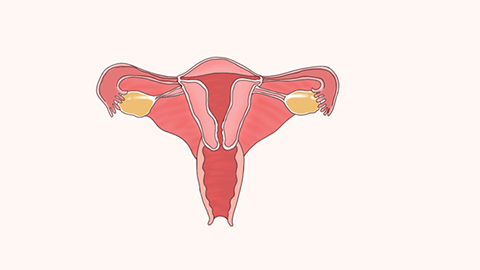What to do about a thin endometrium
Generally, thin endometrium may be caused by factors such as hormonal changes due to aging, excessive dieting leading to nutritional deficiencies, endometritis, intrauterine adhesions, and polycystic ovary syndrome. It is recommended to seek timely medical consultation to identify the underlying cause, and then improve the condition under a doctor's guidance through lifestyle adjustments, medication, and other methods. The detailed analysis is as follows:

1. Hormonal changes due to aging: With increasing age, ovarian function declines and estrogen secretion decreases, leading to insufficient endometrial proliferation and thinning of the endometrium. This is commonly seen in perimenopausal women. In daily life, consuming more foods rich in phytoestrogens, such as soy products and flaxseeds, maintaining regular sleep patterns, and avoiding staying up late are recommended.
2. Excessive dieting and nutritional deficiency: Prolonged dieting leading to inadequate intake of proteins, vitamins, and other nutrients can affect endometrial cell proliferation, causing thinning of the endometrium. Dieting should be stopped immediately, and a balanced diet resumed, including increased consumption of lean meats, eggs, and fresh fruits and vegetables to ensure adequate daily nutrition.
3. Endometritis: Bacterial infection causing inflammation of the endometrium can damage the endometrial tissue, leading to thinning of the endometrium, accompanied by lower abdominal pain and abnormal vaginal discharge. Follow medical advice to take anti-infective medications such as cefixime dispersible tablets, metronidazole tablets, and levofloxacin hydrochloride capsules.
4. Intrauterine adhesions: Injury to the basal layer of the endometrium during uterine cavity procedures can lead to intrauterine adhesions, reducing the surface area and thickness of the endometrium, accompanied by decreased menstrual flow. Adhesiolysis under hysteroscopy should be performed by a physician to separate the adhesions. Postoperative medications such as estradiol valerate tablets, progesterone capsules, and aspirin enteric-coated tablets should be taken as prescribed to promote endometrial repair and prevent recurrence of adhesions.
5. Polycystic ovary syndrome: Endocrine disorders leading to elevated androgen levels and abnormal ovulation result in insufficient estrogen stimulation of the endometrium, causing thinning, accompanied by infrequent menstruation and hirsutism. Follow medical advice to use medications such as ethinyl estradiol cyproterone acetate tablets, drospirenone ethinyl estradiol tablets, and spironolactone tablets to regulate hormone levels and improve ovulation.
In daily life, maintaining a positive mindset, avoiding excessive anxiety, practicing good menstrual hygiene, and avoiding unclean sexual practices are important. A balanced diet, regular sleep patterns, and minimizing uterine cavity procedures can help improve endometrial health and maintain reproductive well-being through comprehensive lifestyle adjustments.







